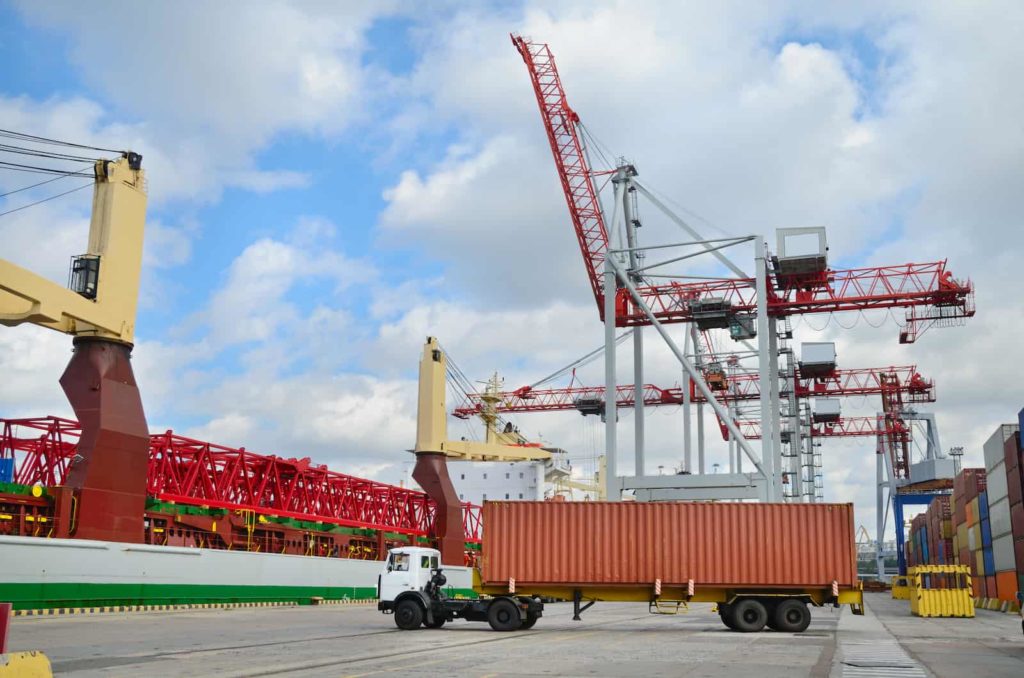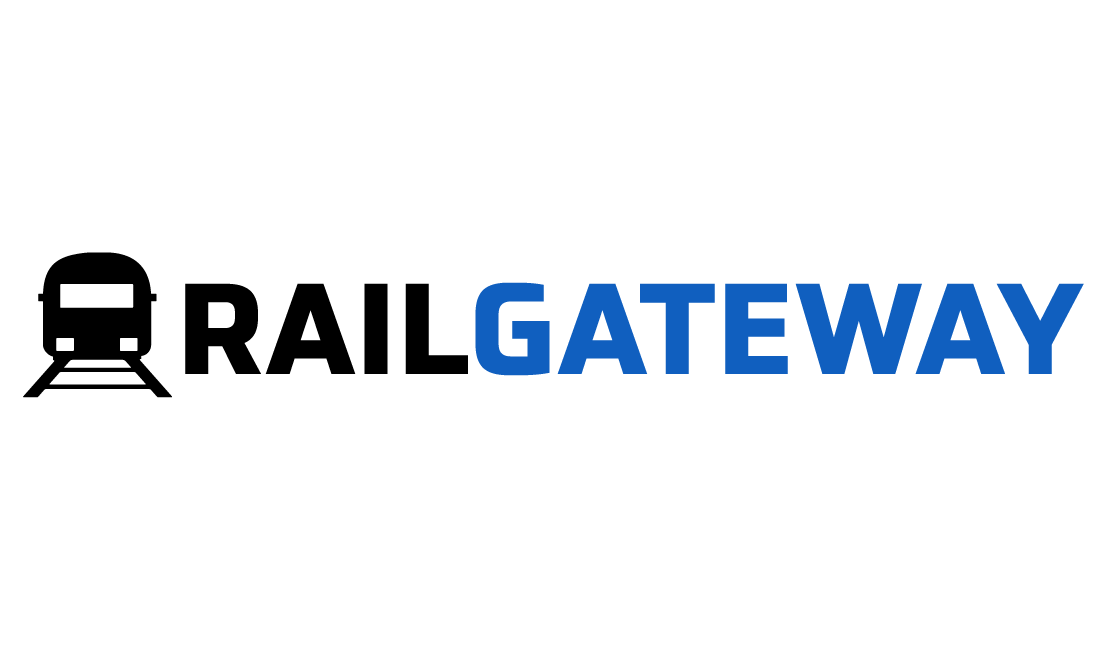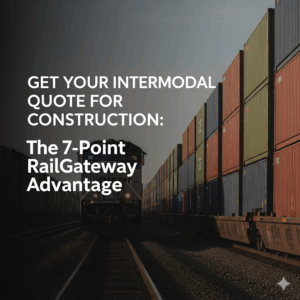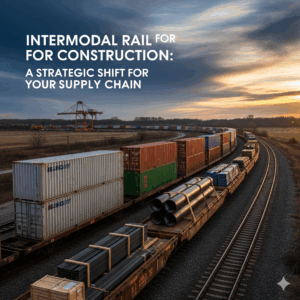Understanding Intermodal Accessorial Charges: What They Mean for Smart Shipping in 2025
This post was last updated on May 21st, 2025
As supply chains evolve in complexity and efficiency, understanding every component of your shipping bill has never been more crucial. One such vital component is intermodal accessorial charges – the often-overlooked, yet potentially costly add-ons that accompany intermodal freight transport. These charges can dramatically impact your bottom line, especially if you’re unaware of their implications or how they arise. In 2025, shippers across North America are becoming more proactive in understanding and managing intermodal accessorial charges to avoid unnecessary expenses and improve operational transparency.
So what exactly are intermodal accessorial charges? These are additional service fees that go beyond standard transport, covering things like detention, chassis usage, storage, reweighs, drayage, and customs inspections. While intermodal transportation offers many advantages – lower costs over long distances, reduced environmental impact, and increased capacity – it also introduces a range of touchpoints where extra fees can be incurred if your supply chain isn’t optimized.
Many companies fall into the trap of treating these charges as unavoidable. However, savvy logistics professionals know that by learning about intermodal accessorial charges, they can negotiate better contracts, improve delivery schedules, and reduce dwell times. A proper understanding of these fees doesn’t just prevent budget overruns – it empowers you to ship smarter.
Among the most common intermodal accessorial charges are:
- Detention charges when containers are held at the origin or destination beyond free time.
- Demurrage incurred when a container remains at a terminal past its allotted free period.
- Chassis usage fees for the equipment used to move containers during drayage.
- Storage charges at rail ramps, ports, or yards.
- Pre-pull or off-site drayage fees when a container is removed from the terminal for holding.
- Lift fees for lifting the container onto or off of a railcar or truck.
Understanding the meaning behind each charge, and how to avoid or reduce them, is key. For example, closely managing appointment windows and scheduling pickups and drop-offs within allowed timeframes can drastically cut down on detention and demurrage. Similarly, partnering with carriers or 3PLs who provide transparent rate breakdowns can save you from hidden surprises.
In the broader logistics conversation, intermodal accessorial charges reflect the growing need for precision and flexibility. E-commerce surges, last-mile delivery challenges, and cross-border complexities are pushing companies to fine-tune their shipping operations. The more you understand the inner workings of your transportation cost structure, the more you can align logistics strategy with broader business goals.
When you proactively track accessorial charge trends and analyze past shipping data, you can anticipate patterns and optimize future shipments. For instance, consistently incurring detention might suggest a need to reassess internal warehouse processing times or coordinate better with delivery partners.
In this guide, we’ll walk you through the 16 most essential intermodal accessorial charges, break down what they mean, how they are applied, and – most importantly – how you can reduce or eliminate them. With the right insight, you’ll transform these “extra” fees from a budget burden into manageable line items that you can control.
Understanding and managing intermodal accessorial charges is no longer just for large corporations with deep logistics teams. In today’s data-rich, fast-paced shipping environment, even small and mid-sized shippers can harness visibility tools, automated billing platforms, and strong partnerships to take full command of their intermodal operations. Welcome to your smarter, more profitable shipping strategy for 2025.

The Basics of Intermodal Accessorial Charges
What are intermodal accessorial charges?
Intermodal Accessorial Charges are an additional fee that intermodal carriers charge for each extra service they provide beyond pick up, transport, and delivery. They are also known as intermodal surcharges.
How do intermodal accessorial charges work?
Fees can vary depending on the type of transportation involved, equipment and services required, the workforce needed, or even external events affecting the shipment at any step of the supply chain and logistic process.
Accessorial charges can, for instance, include demurrage, scale service, inside delivery, fuel surcharges, and more.
Why do carriers apply intermodal accessorial charges?
Additional fees/intermodal accessorial charges are common in the intermodal carrier industry. There are various reasons why carriers may choose to apply additional fees, such as to offset the cost of fuel or to account for updated regulations.
In some cases, carriers may also apply additional operational efficiencies charges, drayage carriers fees, and fuel surcharges to account for higher traffic levels on certain routes.
Ultimately, each carrier is different, and it’s important to research each carrier’s policies before shipping intermodally. You can ensure that you are aware of any additional fees that may apply to your shipment.
What Are the Common Intermodal Accessorial Charges?
There are many different intermodal accessorial charges, and each case is specific. We have listed for you the most common ones for intermodal transportation:
Demurrage charges
Demurrage fees are charges you pay for not picking up your merchandise from a shipping company’s intermodal terminal warehouse within the allocated time.
It covers the fact that the rail terminal has to deal with occupied storage in their warehouse while this should be open for the next clients and the risk of reaching their storage capacity.
Per diem charges
This is the first type of detention charge. This accessorial charge is billed to cover the daily cost of using equipment, containers, chassis, or trailers from another carrier longer than the free time allowed.
This fee keeps growing until the equipment goes back to the original carrier owner. It allows them to cover the unexpected cost of having their equipment on the road one or several days extra, whereas they could be rented to another client.
Driver detention charges
The second type of detention charge corresponds to the driver detention time fee.
This fee is when intermodal carriers must pay an extra hourly charge for the driver when they need to wait for more than the free time planned for loading or unloading the cargo.
Scale fees
This extra fee is an additional you can ask for when booking your intermodal shipments. This service allows you to have your freight scaled on each operator’s load.
It is quite simple, but it can help you avoid future incorrect weight issues and surcharges.
Other Types of Accessorial Charges
Below you will find common charges you might have to pay or be billed. This list is not exhaustive, so if you have any doubts or specific requests, don’t hesitate to contact us!
Entrance fees or inside delivery
Fees are charged by the carrier when merchandise is picked up or delivered to a customer’s location.
This could mean the driver has to enter a building and use some special handling such as a pallet jack to either load or unload the shipment.
Limited access pickup
This additional charge is for entering into a facility that requires special shipment requirements or extra effort because of inspection of the merchandise or security reasons.
Any trucking company usually applies the limited access pickup or delivery fee when delivering to specific destinations such as military bases, schools, or even diplomatic buildings.
Lumper service (load-unload)
Similar to the driver-assist, the lumper service is charged if the carrier needs to add labor costs to the final bill to hire an extra workforce to handle the loading or unloading of the shipment between different modes of transportation or at the loading dock.
Fuel surcharge
This accessorial charge is an extra fee that Carriers typically list to cover increased fuel costs. As the price of fuel can evolve quickly, partner carriers prefer keeping it safe in case of a high rise.
Driver clean fee
Carriers are allowed to apply an extra charge if it is required for the driver to clean his truck before transporting the merchandise.
Driver-assist fee
The driver doesn’t always intervene in the loading process. But when this additional fee is billed, this means the carrier requires the driver to load or unload part of the truck’s cargo at a dock for some extra handling.
Liftgate surcharge
If the consignee location is not equipped with loading docks, the Intermodal carrier can provide the liftgate service to assist you in loading or unloading with liftgate equipment.
This consists in moving your cargo up and down thanks to a hydraulic platform at the back of a particular truck.
It is important to note that not all trucks come with a lift gate, and it is not the shipper’s responsibility to check the delivery destination and add this service. Talk to your intermodal carrier in advance if you consider needing this service.
Hazardous materials
The additional fee that shipping companies apply to transport hazardous materials is due to the added risks they represent for the workforce.
It also covers all the needed paperwork and time the carrier’s team spent to declare this specific shipment to the Department of Transportation.
Redelivery extra charge
This charge is applied when the intermodal carrier has to return back and re-deliver your cargo another day.
Reasons can be diverse: because of a customer’s request, because no one is available to receive the shipment, because there isn’t the necessary equipment on-site to load/unload the goods, etc.
This comes as a pricy expense as, basically, it involves the carrier redoing the whole job.
Advance notification surchage
Extra fee that is based upon the consignee requirements to make the driver send an advance notice to the receiver before its arrival to announce the delivery of the shipment.
Storage charges
This fee is billed if the carrier has to store the merchandise of the customer in its own facilities for whatever reason.
Equipment order not used fee
This fee covers the return of the rail-owned equipment after the carrier is advised that the load has been canceled or is not ready with too little or no notice or when the truck driver is unable to operate.

The Cost of Intermodal Accessorial Charges on Your Business
How much more will you be charged on your freight bill for those fees?
Really, every case is different.
Considering the right additional services for your shipping plan might be a complex thing to do by yourself. If you get mistaken, it can consequently affect the carrier’s rates and your shipping budget.
We know it can be tricky, but we are here to help you with the process.
First of all, we recommend you get an initial quote on our website. Following this, you’ll be in touch with our trained rail shipping experts.
They will be able to help you define the flat fee as well as the correct additional solutions you will need depending on your cargo and shipment specificities, as well as help you reduce accessorial charges.
Be aware of the unexpected accessorial fees
Some accessorial fees, such as demurrage or per diems, are unexpected and triggered by external or unplanned situations.
Yet, they are legitimate, affecting all parts of the supply chain and shipping process.
Unfortunately, you sometimes cannot plan for those additional costs, so they might have to be added to the freight bill during or after shipping depending on the event.
How to reduce intermodal accessorial charges?
If you can give us more details on your cargo and its specifications, we’ll be able to estimate all the potential accessorial charges that might come up.
This way, we can help you identify how these extra costs could be reduced or even eliminated. We always do our best and work hand to hand with our customers.
However, a few things that can help reduce intermodal accessorial charges are:
- Understanding the shipper and consignee requirements
- Correct weight and size of the containers
- Making sure you know the carrier rules, tariffs, and rates
- Choosing the proper vehicles and routes
- Having set up the sufficient teams or equipment to allow a fast and efficient delivery
- Plan the delivery ahead of time
As you can see, intermodal accessorial charges are pretty specific, costly, and can add up quite quickly.
It’s then very important to understand their impact on the overall shipment cost and require the correct services for your intermodal transport shipment.
We hope you enjoyed this blog post. If you need any further assistance or advice to correctly plan your Intermodal shipping strategy, do not hesitate to get a quote or contact us directly! We’ll be happy to help!
Conclusion
As we move deeper into 2025, intermodal freight shipping continues to offer unparalleled advantages in terms of efficiency, cost savings, and sustainability. But to unlock its full potential, shippers must grasp the crucial details – none more important than intermodal accessorial charges. These charges, when unmanaged, can silently erode your margins. However, when properly understood and accounted for, they offer a roadmap to smarter logistics, stronger negotiation, and ultimately, more predictable shipping costs.
By now, you’ve learned that these charges span a variety of logistics scenarios – from detention and demurrage to lift fees and chassis rentals. Each one represents not just a line item on your bill, but a real-world operational inefficiency or service requirement. Instead of reacting to these charges after they’ve been billed, forward-thinking companies are integrating predictive logistics technology and strategic planning to prevent them altogether.
How can this be done in practice? Start by auditing past invoices for recurring intermodal accessorial charges. Then, identify where delays or inefficiencies most commonly occur. Maybe your receiving dock isn’t turning trucks fast enough, or maybe your 3PL doesn’t have strong relationships with the local rail terminal. Once you’ve identified bottlenecks, you can update SOPs, retrain staff, or renegotiate contract terms accordingly.
Transparency is your best friend. Insist on clear, itemized invoices from carriers and use transportation management systems (TMS) to track every leg of your intermodal route. Many of today’s best systems offer automated flagging for accessorial charges, alerting you to recurring issues and giving you an early warning when fees are trending upward.
Communication is another major asset. Coordinating better with carriers and 3PLs helps you align on free time windows, preferred chassis providers, and appointment schedules. The more streamlined your logistics communication, the fewer surprises you’ll face on your invoices.
Education is also key. Train your operations and warehouse teams to understand how small timing issues or handling practices can result in big accessorial charges. Make sure everyone in the shipping chain knows their role in preventing delays, reducing dwell time, and avoiding unnecessary charges.
Ultimately, success in managing intermodal accessorial charges comes down to ownership. It’s about knowing what you’re paying for, why you’re paying it, and what can be done to reduce or eliminate it. When you treat these charges as negotiable – and preventable – you begin to turn intermodal shipping from a cost center into a competitive advantage.
In conclusion, 2025 offers more tools, visibility, and strategic potential than ever before to take control of your intermodal logistics. By mastering accessorial charges, you’re not just saving money – you’re enhancing your entire supply chain’s performance. Make these insights a core part of your shipping strategy and position your business to grow stronger and smarter in the years ahead.

FAQ
- What are intermodal accessorial charges?
Intermodal accessorial charges are additional fees applied for services outside the standard line-haul rate. These can include detention, chassis rental, lift fees, and drayage services. They are common in multi-modal shipping due to extra handling and timing requirements. - Why are intermodal accessorial charges added to my shipping invoice?
They reflect services rendered beyond normal transport—like waiting time, additional equipment use, or unexpected storage. These charges help carriers recoup costs incurred during logistical delays. Understanding them helps shippers better plan and budget. - How can I avoid intermodal accessorial charges?
You can avoid charges by improving scheduling, adhering to pickup and drop-off times, and ensuring cargo is ready. Accurate documentation and communication with carriers are also essential. Using a TMS can help flag potential cost risks in advance. - What is a chassis fee in intermodal shipping?
A chassis fee is charged when you rent a chassis to move a container during drayage. It’s a standard accessorial cost in intermodal freight. Some contracts include chassis access, while others require separate arrangements. - What causes detention fees in intermodal freight?
Detention occurs when equipment is held beyond the allotted free time during loading or unloading. Carriers charge for this to offset lost equipment availability. Efficient loading processes can significantly reduce these fees. - How does demurrage differ from detention?
Demurrage relates to storage at a port or terminal, while detention refers to delays outside terminal gates. Both can add up quickly if not managed. Tracking delivery timelines is essential to avoid both. - Are lift fees negotiable in intermodal shipping?
Yes, in some cases you can negotiate lift fees depending on volume or contractual terms. Lift fees are applied when containers are loaded/unloaded between modes. Partnering with carriers who bundle services can help reduce these costs. - Can intermodal accessorial charges be billed after shipment delivery?
Yes, many are invoiced after delivery once delays or additional services are confirmed. This makes shipment tracking and time stamps critical. Review post-shipment bills regularly to verify accuracy. - Is a fuel surcharge considered an accessorial charge?
Fuel surcharges are technically separate from accessorials, but they function similarly as additional costs. They’re based on fuel index fluctuations. Some contracts include them by default, others itemize them. - What is pre-pull in intermodal shipping?
Pre-pull involves removing a container from a terminal before the delivery appointment, usually to avoid demurrage. It incurs a fee, but can save money compared to extended storage. This strategy is common during peak congestion. - Do I need to pay accessorial charges upfront?
Most accessorials are post-paid after services are rendered. However, some providers may request pre-approval for expected charges. Having a credit agreement with carriers helps streamline this. - How can technology help manage intermodal accessorial charges?
Modern TMS platforms can automatically track service times, identify delays, and predict charges. They also allow integration with carrier systems for real-time insights. Using data analytics, companies can improve processes and reduce recurring accessorials.
How We Can Help
For businesses looking to optimize their freight shipping with reliable, efficient, and cost-effective solutions, RailGateway.ca is your trusted partner in intermodal logistics. Whether you’re new to freight trains or want to enhance your existing supply chain, our team of intermodal experts is ready to guide you every step of the way.
Contact RailGateway.ca today for a free quote or to speak directly with one of our experienced intermodal specialists. Let us help you unlock smarter, smoother shipping solutions tailored to your unique needs.
Visit RailGateway.ca or call us to get started on transforming your freight shipping strategy in 2025 and beyond.





